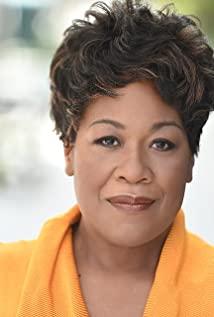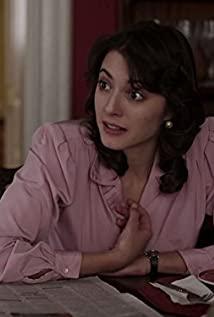First of all, the topic of this play is still as atmospheric as The Wire, focusing on niche, rarely filmed, but important topics such as local politics and desegregation. Secondly, this drama is still like The Wire, which can make such a theme very watchable. In the end, the film is still well-made (and has the cast of O and The Wire).
Although it can be watched, the level of this drama and The Wire is still a lot worse. The tragedy of The Wire stems from the sympathetic perspective and the tragic fate of the characters in ancient Greece. The focus of the play is open to question. Having Wasicsko in the lead role was the most dramatic, but one of the things that held it back from being The Wire. Much of the tragedy in the film stems from the fall of Wasicsko, but Martinelli and Spallone face the same challenges and failures without self-pity, which makes it difficult for Wasicsko to empathize (especially with Nay being portrayed this way). Angel, but the reason Angel is probably because she's still alive as an advisor to the show and everyone else is gone). And Wasicsko's degenerate speed is extremely fast, as if the fourth episode was a gentleman farmer, and he became a villain who did everything for the superior and hurt his family for the political power play.
The reason why it seems abrupt is because the play has left a lot of space to a few families living in low-rent housing. But in fact, whether it's Norma and Carmen who have (had) jobs, or Doreen and Billie who don't, all in all, it's very miserable to be trapped in low-rent housing. Although there is a lot of space, the characters are rarely explored. For example, why did Doreen grow up in a harmonious family, but he was willing to hang out on the street, why he fell in love with crack in the end, and how he stood up again, everything is very superficial.
This problem is also highlighted in other characters. Basically all the characters are flat, for example, Spallone is the stubborn anti-build low-rent housing in Yonkers, Sussman and Judge Sand are the messengers of justice and so on. The reason for this is that The Wire has five seasons to slowly develop and reveal characters, and the show is only six episodes long.
But in this inherent limitation, it seems that the show wastes space in too many unimportant plots (such as Carmen's return to Dominica) and ignores a key group: the original residents of Yonkers. The Yonkers residents who appeared in this play, except for Mary who "returned from evil", the images of other people are mostly mob and racist. But the show doesn't spend any time discussing the ins and outs of these people and whether their ideas have legitimate appeals. More importantly, there is no "silent majority" involved in this play.
At the end of the day, it's because of a show that doesn't mention money. Compared to money, power is intangible and harder to trace. Money has a specific amount. As long as we follow Deep Throat's suggestion of "follow the money", we can see how the specific money is generated, how it is consumed, and whose power is concentrated.
As far as this play is concerned, the original residents of Yonkers have jobs (of course, the specific jobs are not mentioned in the film), but according to American practice, most of the assets should be gathered in the house. According to the previous case of white flight, its assets are facing a sharp depreciation because of this lawsuit, so in a country where private property cannot be violated, people are justifiably angry. At the same time, whether it is the money for building the house or the rent in the future, it also comes from their wages, and there are people they support who do not want to work, divorce, take drugs, or commit crimes, so it is understandable for them to be vigilant and feel unfair. of.
In fact, the issue of not talking about money affects the shaping of everyone and not just the supporting cast or the "silent majority." As far as the protagonist Wasicsko is concerned, being an official has a sense of accomplishment and participation in the game, but it can be seen from the fact that his wife has been serving in different departments, the traditional American spillage is also an important motivation for them to run for election, and these dramas are There is no mention, not even a description of how Wasicsko lived after being "laid off".
It can be said that The Wire's success lies in making the audience feel that they are deep in the slums of Baltimore, so what the show lacks is the details of life that are beyond the traditional liberal idea.
View more about Show Me a Hero reviews











